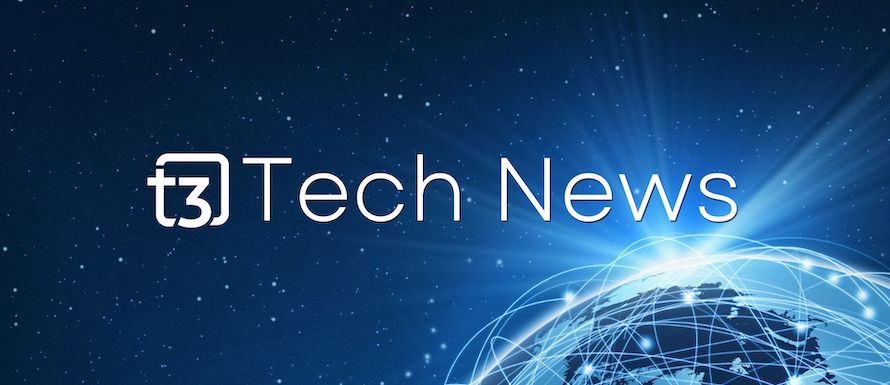Schwab Launches Schwab Intelligent Advisory: Should Advisors Worry?
Schwab Launches Schwab Intelligent Advisory: Should Advisors Worry?

Schwab recently announced the general launch of Schwab Intelligent Advisory, the firm’s new hybrid advisory offering that combines access to live, CFP® credentialed advisors with an advanced technology platform. The goal, according to Schwab, is to make financial and investment planning more accessible to a wider portion of the population. Schwab Intelligent Advisory provides investors with a financial plan tailored to their situation and their goals, ongoing guidance, and expertise from experienced planning consultants. As part of the service, Schwab will create a diversified investment portfolio in alignment with the client’s risk tolerance and goals. The investment process is automated, monitored and powered by Schwab Intelligent Portfolios.
The pricing of Schwab Intelligent Advisory is aggressive. The minimum fee is $25,000 and an annual advisory fee of 0.28% of assets with a quarterly maximum of $900. That’s substantially less than Personal Capital’s 0.89% fee for the first $1 million of AUM, lower than the 1.00% fee that many independent advisors charge, and even lower than Vanguard’s 0.30% fee for Vanguard Personal Advisor Services. Furthermore, Vanguard imposes a $250,000 investment minimum, and they do not cap the quarterly fee. Independent broker/dealer platforms suffer by comparison as well. LPL’s Guided Wealth Platform, an investment platform, charges their advisors 0.35% to use the platform. That’s before advisors add their fee, and the platform does not currently include a financial planning component. Some of LPL’s competitors charge considerably more for similar platforms.
HERE’S WHAT CLIENTS GET
So what does a Schwab Intelligent Advisory client get for the 28 bp? They get a financial plan powered by MoneyGuidePro and created by a CERTIFIED FINANCIAL PLANNERTM. There is an online scheduling tool that allows clients to schedule telephone or video meetings. The CFP® will recommend a diversified portfolio powered by Schwab Intelligent Portfolios. In addition, the client has access to a client dashboard.
The client can go through a self-guided process of creating goals and entering data. There is video help at every step, as well as 24/7 access to a Schwab staff member through chat or phone. If the client is an existing Schwab client, all of the assets held at Schwab can automatically be brought into the plan, minimizing manual data entry. For held away assets, aggregation is available through Yodlee to further minimize data entry. All assets entered into the software are assigned an asset class by the software.
Once a client completes the data entry, they get an initial reading on their current situation from the MoneyGuide dial that provides a probability of meeting their goals through a Monte Carlo analysis. The client can then enter the PlayZone to explore alternative scenarios. The advisor will then create a preliminary financial plan for the client, followed by a meeting to arrive at a recommended plan. The plan includes a brief personalized plan summary, followed by a custom action plan – for instance: save $10,000 more for an emergency fund, see a lawyer to update your estate plan, purchase personal disability insurance, etc. The advisor will also discuss the recommended portfolio or portfolios to be managed by Schwab Intelligent Portfolios.
After the initial planning phase, clients have access to the plan and Intelligent Portfolios through the Schwab mobile app. They can view information regarding their portfolios, view the full financial plan, update a financial goal, or view new scenarios in the PlayZone. The app looks good on a tablet, but it also looks very good on a mobile phone.
Schwab is advising clients of the program to meet at least annually for a financial check-up and update, but clients are free to schedule appointments at any time as needed.
The program is launching with approximately 30 CFP® licensees spread over three regions,, and more will be added as needed.
PEOPLE OUT THERE NEED A PLAN
Neesha Hathi, Executive Vice President, Investor Client Experience and Platforms at Charles Schwab, says: “We believe the target market for this product is the emerging affluent. Many may not have thought they could afford and advisor, or they didn’t think they needed one. There are a lot of people out there who can benefit from a plan who do not have one. Schwab Intelligent Advisory makes planning accessible to them.”
Most T3 readers would agree 100% that people who do not currently have a financial plan could benefit from having one, and I suspect that Schwab will be successful in bringing financial planning to the emerging affluent. What’s less clear is what type of individual or household Schwab Intelligent Advisory will appeal to. Will the appeal be limited to a population that advisors have not traditionally courted, or will Schwab be competing directly with advisors?
It seems that Schwab Intelligent Advisory is courting the same population that younger independent advisors are courting. I put the question to Michael Kitces of the XY Planning Network. It comes as no surprise that he downplays the threat of Schwab encroaching on his planners’ turf, but he does see a threat to others.
WHO’S AT RISK?
“Overall, I don’t see Schwab Intelligent Advisory as a major threat to XY Planning Network,” he says. XYPN advisors are still structured for dedicated 1-to-1 in-depth financial planning relationships (which SIA is not), and work with NO asset minimums as well (which means they tend to attract a less-AUM-centric clientele in the first place). I wouldn’t see Schwab and Vanguard as major threats for Garrett Planning Network either, for similar reasons. And frankly, Millennials are SO underserved overall, there’s plenty of room for everyone to be successful there.”
“I do, however, think that SIA is a major competitive threat to those serving the mass affluent (classically defined as $100,000 to $1M of AUM). I’m certain it’s no coincidence that SIA is being rolled out just weeks before the DOL fiduciary rule is set to take effect; I think Schwab sees substantial disruption coming to much of the broker/dealer community that has traditionally served the mass affluent on a commissioned basis, and believes they can capture market share with a favorably priced offering as a level-fee fiduciary. Notably, that means the lamentations of the broker/dealer community that the mass affluent won’t be served under DOL fiduciary is looking increasingly hollow – Schwab Intelligent Advisor, and also Vanguard Personal Advisor Services, are clearly positioning themselves to capitalize on the opportunity and ensure consumers are still served.”
“However,” continues Kitces, “while this is nominally a competitive threat to the underserved mass affluent and those who might be displaced from brokers with DOL fiduciary, I think the competitive threat of SIA (and Vanguard’s PAS) is wider. They’re competitive threats to the RIA community, as well – at least the ones who are serving the mass affluent. Which, in point of fact, is MOST independent RIAs by quantity, and especially the mass of solo advisors. I don’t think SIA and VPAS are gunning for RIAs in particular, but the competitive clash and ‘channel conflict’ is there, for sure. In fact, I had warned on the Nerd’s Eye View blog almost 2 years ago, that I think Schwab and Vanguard (and I would be surprised if soon that include Fidelity, too) are becoming the greatest competitive threats to the independent advisor community, by pivoting themselves from being discount brokerage firms and asset managers, into bona fide advice-providers. Advisors who have niches will still thrive in their niches (which are too small for mega firms to pursue), and those serving high-net-worth clientele will remain differentiated with the depth of their offerings. But the rest of advisors who are undifferentiated and serving the mass affluent are going to struggle against the sheer size, scope, and marketing budget of solutions like VPAS and SIA.”
Tim Welsh, CFP®, President of Nexus Strategy LLC, weighs in with this: “For the first time, Schwab is putting a floor on what financial planning and investment management cost. This is the future of what basic financial planning and investment advice will cost. It raises awareness among the general public regarding cost. It will create pricing pressure for firms that do not have a robust offering.”
WHAT TO DO NOW
I continue to believe, as Kitces and Welsh do, that differentiation, either through niche marketing or high touch service targeting high net worth clients are the keys to a successful future. To that, I’d add efficiency and scalability. I believe that advisors who can match Schwab Intelligent Advisory technologically and offer a unique service model will be able to charge a premium. That led me to ask Hathi if Schwab would make Schwab Intelligent Advisory technology available to advisors as a platform, much as they did with Intelligent Portfolios. Hathi replied that Schwab has no immediate plans to do so, but if there is sufficient demand, Schwab would give the idea serious consideration.
If there is one thing that advisors should take away from this latest development, it is that complacency is not an option. Technology is evolving rapidly, as are business models. The price compression that we’ve seen on the investment side of the business is starting to permeate the financial planning space as well. We believe that quality advisors will peacefully co-exist with competing business models, but only if they provide value-added services backed by an excellent client experience and excellent technology.


